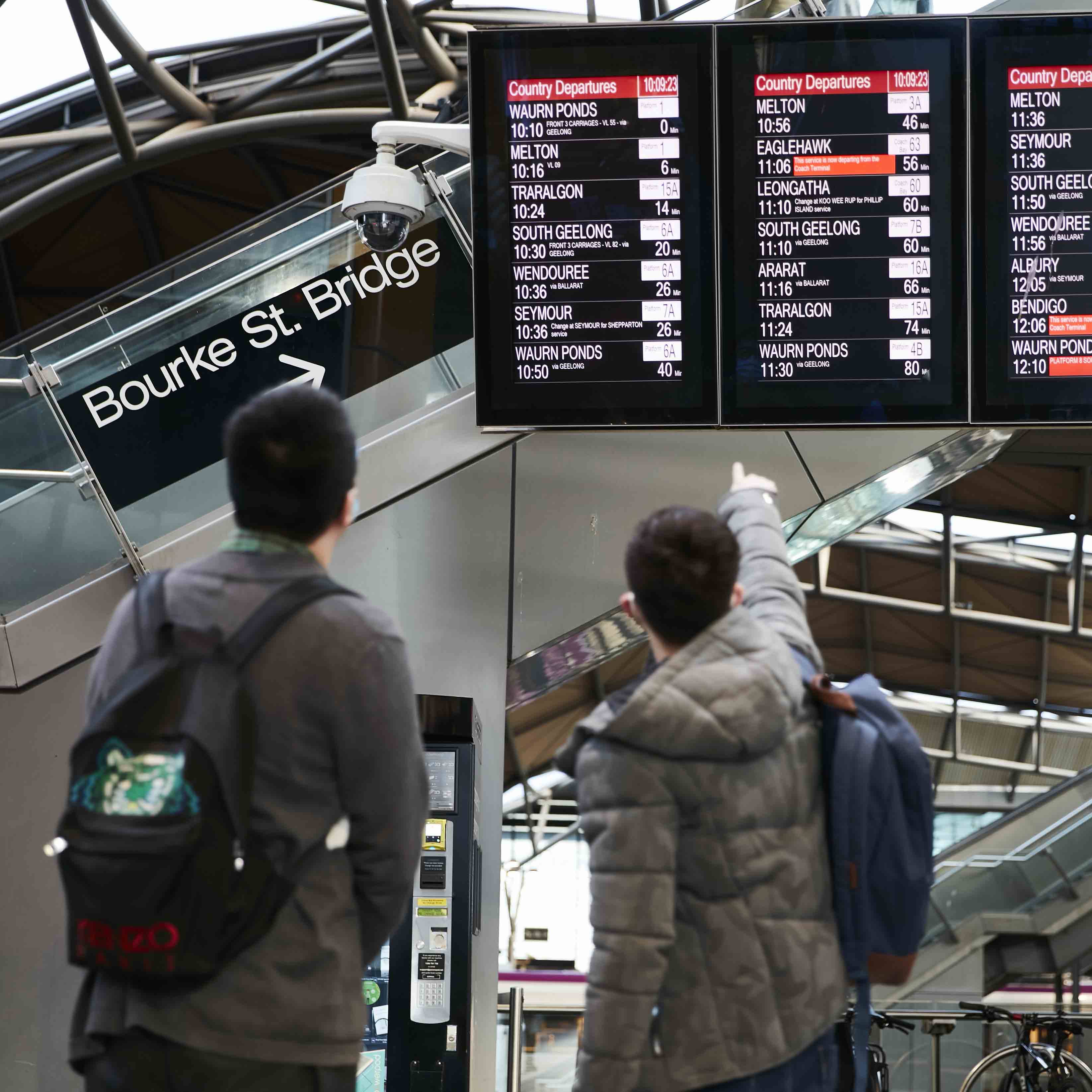Making our services easier to understand for everyone
The Public Transport Ombudsman is committed to providing inclusive and accessible services for everyone, including people with a disability, and people from non-English speaking backgrounds. We want to ensure that all Victorians can access our services and understand how we can help them.
We've worked with accessible information specialists, Scope, to translate key information into Easy English and Plain English brochures, to assist people who have difficulties reading and writing in English.
A 2013 ABS survey found that 44 per cent of Australians aged between 15 and 72 have low literacy skills. Around 16 per cent of Australians were classified at or below the lowest reading level.
“If you have difficulty reading, that can stop you from becoming aware of your rights and how you can take action by complaining about a public transport provider or the impact of a construction project,” said Public Transport Ombudsman Simon McKenzie.
Factors that can contribute to English language reading difficulties include cognitive impairment, intellectual disability, educational opportunities and coming from a non-English speaking background.
Having lower literacy skills is a driver of social and economic disadvantage, putting people at risk of being unable to fully participate in the labour market, education and civic life.
Mr McKenzie said that people having difficulty reading may be very reliant on public transport, more likely to experience issues with public transport service accessibility, and “less likely to be aware of their right to complain”. To address these issues “it is important my office is responsive to a range of community needs and information requirements”.
The PTO’s new Easy English and Plain English brochures were developed in consultation with disability services provider Scope. Although designed with lower literacy readers in mind, they are “a resource for everyone” regardless of reading level, said Mr McKenzie.
“Having an Easy English option and using Plain English in our communications is an important aspect of making sure the PTO delivers public information that’s accessible to all Victorians,” Mr McKenzie said.

People viewing the train departure information displays at Southern Cross Station
Easy English vs Plain English: what are they and how are they different?
Easy English is a distinct form of written communication. It’s designed to help people who have difficulty reading and understanding English. Easy English uses short sentences and simple language. It includes design conventions like using dot points to communicate ideas, images to support the information, larger text and greater amounts of white space on the page. Easy English is simpler and has a lower reading level than Plain English.
Plain English is a direct style of writing, designed to help people understand information easily and quickly the first time they read it. This is especially important for information that’s complex, detailed or involves specialist jargon
For a ‘deeper dive’ on Easy English vs Plain English:
- The Centre for Inclusive Design has an excellent explainer.
- Scope offers online training in Accessible Written Information.
Meeting the needs of people who have English language reading difficulties
The PTO’s Easy English and Plain English brochures were developed by Scope's Accessible Information Service.
Scope has an evidence-based approach to creating accessible communication materials. This incorporates user testing by a team of people with lived experience of disability and low English literacy, to verify accessibility before documents are finalised.
Scope’s accessibility review was one of a suite of information-related initiatives linked to the PTO’s Accessibility & Inclusion Action Plan. Others included redesigning our website to meet Web Content Accessibility Guidelines, producing an Auslan information video and providing information on the website in eleven languages other than English.
Have a complaint about public transport?
If you have a complaint about public transport you haven’t been able to resolve with the operator, we want to hear from you. You can call the PTO on 1800 466 865 or you can
We can also be contacted via our online complaint form or you can send us a message via Facebook. We can also be contacted via The National Relay Service and Translating and Interpreting Service.
If you need any assistance with planning your travel, you can call PTV on 1800 800 007.
The PTO office is open during standard business hours, or enquiries can be lodged out of hours via the online complaint form, via
For news and updates from the PTO follow us on Facebook, Twitter, LinkedIn and Instagram.


The Public Transport Ombudsman respectfully acknowledges the Traditional Custodians of the lands on which we operate our services. We pay our respects to the ongoing living cultures of Aboriginal and Torres Strait Islander peoples, and to Elders past and present.
